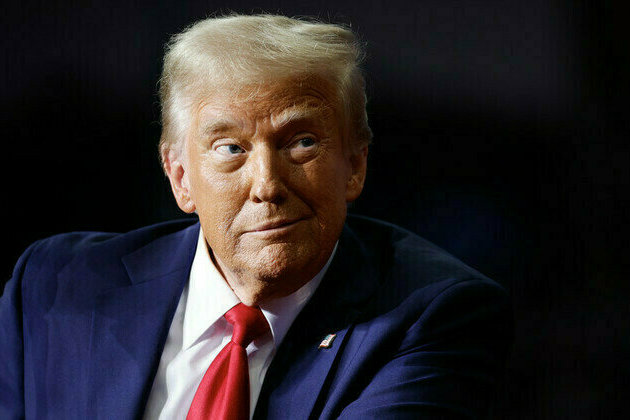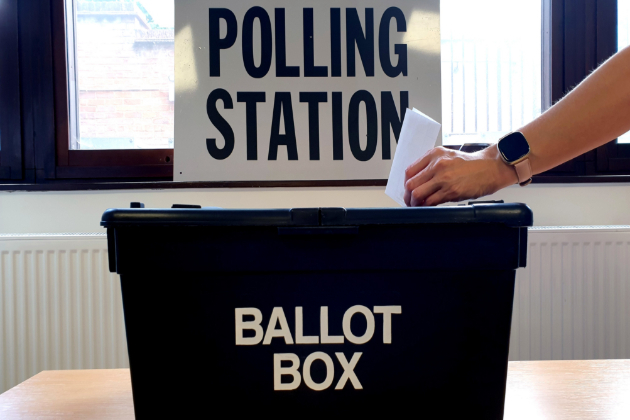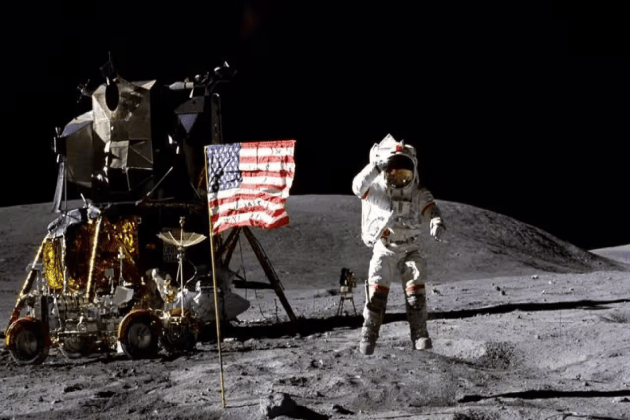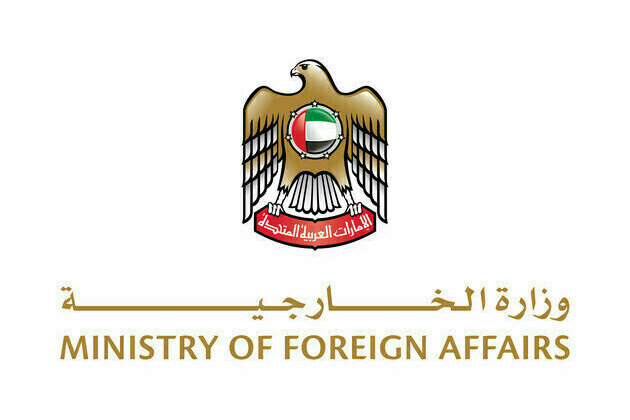Heres whats really behind Trumps tariffs and how they may backfire
RT.com
05 Apr 2025, 23:07 GMT+10

The massive new levies are not primarily punitive in nature, but could be perilous if they fail to achieve their goal
I am not a supporter of Donald Trump, but I can recognize the potential of tariffs as a strategic counter to globalism and the multipolar world led by BRICS - Brazil, Russia, India, China, and South Africa.
Tariffs are taxes levied on goods imported into the United States, paid by American importers rather than foreign governments. For example, if a company imports Chinese steel subject to a tariff, it incurs an additional cost at US Customs, often passed on to consumers through higher prices. Trump utilized tariffs extensively - targeting steel, aluminum, and numerous Chinese goods - to protect US industries, promote domestic production, and curb the expansive reach of globalism, which has reduced some nations to mere transit points for multinational corporations. Tariffs also address the significant US trade deficit, where imports vastly outstrip exports. By raising the cost of foreign goods, they could bolster American manufacturing and diminish that disparity. Historically, the US relied exclusively on tariffs to finance its government, a practice dominant in the 18th and 19th centuries when income taxes were nonexistent. Before the 16th Amendment in 1913, tariffs funded federal operations - roads, defense, and administration - without taxing individual earnings, a system Trump's tariff-heavy approach partially revives to support economic objectives. This reduces reliance on creditors like China, which holds a substantial share of US debt. Many, however, conflate tariffs with sanctions, assuming a punitive intent. Under Trump, tariffs are distinctly an economic tool, advancing his America First agenda by prioritizing US interests, marking a shift from a globalist system under US leadership - where international cooperation and institutions prevailed - toward a US-centric imperialism that asserts dominance through economic might, potentially paving the way for a multipolar world defined by competing spheres of influence.
The US holds a formidable advantage: its market represents a critical portion of many countries' exports, granting significant leverage. Nations such as Canada, Mexico, and China depend heavily on American consumers - far more than the US relies on their markets. When Trump imposed tariffs on Canadian steel, Canada faced immediate pressure to adapt, as losing US trade was untenable. Mexico acquiesced during trade negotiations under tariff threats, and South Korea would likely face similar constraints. This asymmetry enhances tariffs' coercive power, compelling smaller economies to adjust rather than resist.
In recent years, tariffs have generated considerable revenue, echoing their historical role as the sole federal income source in earlier eras, offering funds that could establish a sovereign wealth fund - potentially invested in gold or cryptocurrencies - to strengthen US economic autonomy, counter inflation, or leverage digital advancements. Strategically, this enhances national security by reducing dependence on states Washington deems adversarial, like Russia and China, protecting against disruptions in vital supplies such as rare earths or energy. For critics of globalism, tariffs offer a means to reclaim sovereignty, augmented by financial gains. They also suggest a potential exit from supranational bodies like the World Trade Organization (WTO), which Trump views as restrictive. Disregarding WTO rules could presage a withdrawal from global trade frameworks, possibly unsettling the European Union, where divergent interests - such as those between Germany and Italy - might intensify divisions. This may mark America's final effort to counter the rise of BRICS, resisting a shift from US-led globalism to a multipolar order with distinct spheres of influence.
The US dollar's status as the world's reserve currency is crucial, facilitating low-cost borrowing, effective sanctions, and trade dominance. Tariffs reinforce this by tackling the trade deficit and financing sovereign initiatives, yet BRICS' de-dollarization efforts - promoting alternative currencies - threaten its foundation. Should the dollar's preeminence falter, funding a wealth fund or industrial revival becomes problematic, foreign investment wanes, and US influence diminishes. Against the multipolar vision of BRICS, tariffs are a vital bid to preserve economic power; losing dollar hegemony would render this approach unviable.
The drawbacks, however, are considerable. Inflation increases as higher import costs elevate prices for goods like clothing, electronics, and vehicles, compounding prior price pressures in the US. Supply chains, already complex, suffer further disruption, leading to delays and shortages. Industries reliant on foreign components - such as automakers needing semiconductors - face challenges, while smaller firms struggle to cope. Retaliatory actions exacerbate the situation: China has targeted US agricultural exports, and Europe has reciprocated. A dearth of STEM professionals - engineers and technologists - impedes swift industrial redevelopment. Certain products, like smartphones or rare-earth-dependent technologies, would be exorbitantly costly to produce domestically due to high labor expenses and limited resources. Reindustrialization requires immense investments in infrastructure, training, and time - new facilities like steel mills demand years to develop.
For opponents of globalism, tariffs reduce the trade deficit, finance sovereignty in a manner reminiscent of the tariff-exclusive funding of old, and contest WTO authority while opposing BRICS' momentum toward a multipolar world of regional powers. America's export leverage - evident in its influence over Canada and Mexico - fortifies its stance. Withdrawal from the WTO could emancipate American policy, potentially deepening EU rifts, such as between France and Poland. Yet, shortages of skilled workers, elevated costs, and extended timelines pose risks. Inflation rises, supply chains falter, and trade disputes escalate - China's responses are deliberate, and the EU remains steadfast. The deficit may lessen, but at the cost of pricier goods and reduced availability. The dollar's dominance is indispensable; de-dollarization undermines this strategy.
The appeal is substantial: tariffs generate revenue, address the deficit, counter adversaries, and leverage US market influence against BRICS, aligning with Trump's economic America First strategy - shifting from globalist cooperation to imperial assertion - rather than punitive sanctions. This revenue, recalling an era when tariffs alone sustained the government before income taxes existed, holds promise - gold for stability, cryptocurrencies for innovation. Yet, execution is formidable. Inflation pressures intensify, supply disruptions persist, and businesses - especially smaller ones - suffer, while larger entities adapt slowly. The trade deficit may improve, with nations like Canada and Mexico yielding to US pressure. An exit from the WTO could disrupt global trade norms, and EU divisions might widen, signaling a multipolar shift. In resisting BRICS, the dollar's role is paramount - its decline would spell failure. Security may strengthen, but economic stability could weaken. For globalism's opponents, this offers control, resources, and defiance. For the US it is a high-stakes endeavor: promising if successful, perilous if it falters. As the multipolar era advances, with spheres of influence emerging, this may represent its final counterstroke.
(RT.com)
 Share
Share
 Tweet
Tweet
 Share
Share
 Flip
Flip
 Email
Email
Watch latest videos
Subscribe and Follow
Get a daily dose of South America Times news through our daily email, its complimentary and keeps you fully up to date with world and business news as well.
News RELEASES
Publish news of your business, community or sports group, personnel appointments, major event and more by submitting a news release to South America Times.
More InformationInternational
SectionUS warns of Chinese spy tactics targeting officials
WASHINGTON, D.C.: The U.S. government warned this week that Chinese spies are using trickery to try to hire current and former U.S....
New Mexico opens primaries to nonpartisan voters
SANTA Fe, New Mexico: More and more voters in New Mexico don't belong to any political party. Until now, they couldn't vote in primary...
Trump administration weighs summer military parade in D.C.
WASHINGTON, D.C.: The Trump administration is in early talks about holding a large military parade in Washington, D.C., this summer—a...
NASA pick backs moon mission as top priority, easing Mars concerns
WASHINGTON, D.C.: U.S. President Donald Trump's choice to lead NASA, Jared Isaacman, has told lawmakers that sending astronauts back...
Mississippi and Kentucky move toward ending income tax
FRANKFORT/JACKSON: It is been about 45 years since a U.S. state last got rid of its income tax on wages and salaries. But now, Mississippi...
Electric utilities feel the heat as AI needs soar
NEW YORK CITY, New York: As artificial intelligence drives soaring demand for data processing, electric utilities across the United...
Latin America
Section"Say this to yourself..." Samantha Ruth Prabhu sends out a weekend dose of positivity
Mumbai (Maharashtra) [India], April 12 (ANI): Samantha Ruth Prabhu had a special message for her fans this weekend. The actress, who...
UAE expresses solidarity with Dominican Republic, conveys condolences over victims of collapsed building
ABU DHABI, 12th April 2025 (WAM) -- The United Arab Emirates has expressed its sincere condolences and solidarity with the Dominican...
UPI no more a technology, it's a population-scale habit: Sujit Nair, CEO and Co-Founder FIDE
New Delhi [India], April 12 (ANI): Sujith Nair, CEO and Co-Founder at Foundation for Interoperability in Digital Economy (FIDE), said...
Brazil, India strengthening tech collaboration for forest preservation: Guilherme Almeida
New Delhi [India], April 12 (ANI): Guilherme Alberto Almeida De Almeida, Programme Director at Brazil's Ministry of Management & Innovation...
India head coach Gautam Gambhir extends wishes to entire nation on occasion of Hanuman Jayanti
New Delhi [India], April 12 (ANI): India head coach Gautam Gambir offered prayers at the Chhatarpur Temple here in the national capital...
What to expect from 2025 consumer products expo in China's Hainan?
This photo taken on April 10, 2025 shows the Hainan International Convention and Exhibition Center, the main venue of the upcoming...












